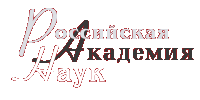

|
Поиск атрибутный
|  |
|

|
 |
Модель общего равновесия при наличии транзакционных издержек и денежных суррогатов: II
Аннотация
We consider general equilibrium in an economy where all firms face bid-ask spread, The spread may be caused by indirect business taxes, rent-seeking by intermediaries, delays in payment, liquidity constraints or price uncertainty. Whenever it comes from, the spread results in inefficiency of market equilibrium. We discuss some institutions that can decrease the inefficiency. One is the second currency (quasi-money) used exclusively in inter-firm transactions. It is shown that the general equilibrium in an economy with quasi-money is equivalent to the one with barter exchanges between firms. Both reach economy’s PPF though are still different from Arrow-Debreu equilibrium. Another solution is to introduce mutual trade credit. In the economy with trade credit there are multiple equilibria that are more efficient than those in one the original bid-ask spread economy but still not as efficient as Arrow-Debreu equilibrium, too. The implications for firms’ integration and applicability to Russian economy in transition are discussed.
Ключевые слова
модель общего равновесия, транзакционные издержки,
денежные суррогаты
Полный текст
 в формате pdf в формате pdf | |
|

